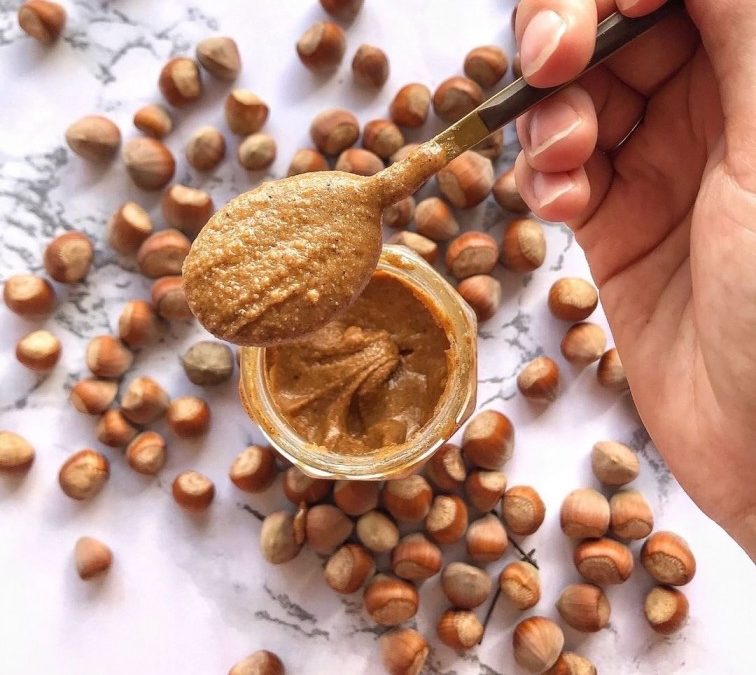British Superfoods
I’m not a fan of the word superfood, as it seems to imply that all other foods are less than super, but some foods can help damp down the inflammatory effects of modern life and it’s good to know what they are so that you can rejoice when you eat them. You don’t need to eat avocados and goji berries to get your anti-inflammatories, they’re all around us in the fields and hedgerows! Try my simple nettle and wild garlic soup that is packed full of antioxidants and makes a great spring tonic – if you haven’t eaten nettles before, they are just as delicious as spinach! Check out my book, Food for a Happy Gut, for more yummy recipes that will nourish and heal your gut, keeping you healthy, vital and full of energy.
Herbs: Weight for weight, herbs pack the most nutritional punch of any plant food, so include them wherever you can and don’t worry too much about which does what. Try herb pesto, gremolata, herb oils, herb crumb toppings and add handfuls to salads, soups and stirfries.
Fruit: All fruits are fairly high in antioxidants, which encourage cell renewal and limit the damage caused by free radicals. The insoluble fibre in fruit helps the body to get rid of toxins created during cell metabolism and the soluble fibre improves the microbiome, which regulates the immune response. As a rule, the brighter or darker the fruit, the more antioxidants it contains, but apples and pears are also great sources of soluble fibre, so don’t discount them either. Eat whole fruit as a sweet treat, skin and all, and not just the sugary juice.
Vegetables: If you want to calm your immune system, add more plants to your diet, especially vegetables. Bright and deeply coloured vegetables generally contain the most anti-oxidants, although antiaging sulphur is contained in many white vegetables like cauliflower and mushrooms. Consider the fibre content of your vegetables and eat skins, chewy parts and prebiotic brassicas, alliums, artichokes and asparagus as these will help you to excrete waste products and feed your microbiome too.
Pulses Eating too much meat can have an inflammatory effect, so eating fibre rich pulses can help to reduce this. However, they do contain high concentrations of substances called lectins (found in all plant foods), which can irritate the immune system and cause it to turn on itself. In order to minimize this, soak them overnight, boil for about 15 minutes in fresh water, drain and cook again in fresh water. Pulses cooked this way can be frozen, so that they are as instant as canned pulses. Check out www.hodmedods.co.uk for British grown pulses.
Fish: Oily fish are a great source of long chain omega-3 fats. Plant omegas are short chain and therefore require conversion before they can be used in the body. Whilst salmon and tuna are the oily fish we most often turn to, it is preferable for both the fish, and your health that you try to eat the smaller oily fish that are abundant around our shores.
Seaweed: A compound called fucoidan found in seaweed, has been shown to help formation of connective tissue and reduce production of inflammatory cytokines, making it an excellent support for inflammatory joint pain. Check out Food For a Happy Gut for recipes that include seaweed and the Cornish Seaweed Company for British seaweeds.
Seeds and nuts: All seeds and nuts contain lots of fibre and some wonderful soothing essential fats. They have been shown to improve the gut microbiome and rather than being fattening, appear to reduce hunger between meals and promote a feeling of satisfaction. Linseeds, camelina seeds, walnuts, and pumpkin seeds contain good levels of omega 3 fats that are highly anti-inflammatory.
©Naomi Devlin 2018


Recent Comments